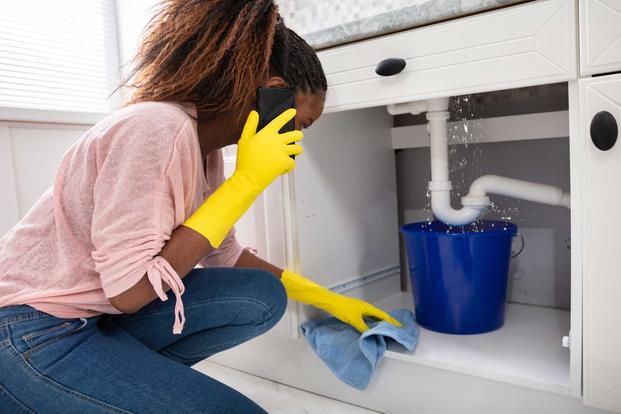Post from MilitaryByOwner
When it comes to renting a home, you might think it’s apparent which repairs and issues your landlord is responsible for. Broken water heater? Yes. Fence falling down? Of course. Your child put a basketball through the picture window? Well … you’ll definitely need to notify the landlord, but this repair is probably on your dime.
But there are other home maintenance tasks and small household repairs that may not be as clear-cut. Here’s a quick list to help you, as the renter, understand what your responsibilities might be. You can find more detailed information in What Are the Maintenance Responsibilities for Both Tenants and Landlords?
Typically speaking (as there are, of course, always exceptions, as well as what’s been agreed upon in your lease), these are the maintenance expectations for landlords and tenants.
Landlord Home Maintenance
- Maintain intact and safe structure (roof, walls, stairs, floors, other structures on property)
- Pest treatment and extermination
- Maintenance of HVAC, electrical, water and sewer systems to keep home habitable
- No environmental hazards
- Reasonable protection from criminal intrusion
It’s important to note that, “The technical legal term for a tenant's right to a livable rental is the ‘implied warranty of habitability.’ The term comes from the idea that landlords promise tenants a livable place simply by offering the property for rent -- the promise does not have to be written in a lease or otherwise formally agreed upon.”
While landlords are required to provide a livable home, tenants also are expected to help maintain it while they live there. The Balance defines tenant obligations this way:
“Tenant obligations are the terms the tenant is required to uphold in a landlord-tenant agreement. Some of these obligations are spelled out in the rental agreement or lease, while others are understood to be part of the landlord-tenant relationship.
Just as a landlord is expected to provide a habitable place to live, free of dangerous or unsanitary conditions, so is the renter expected to do their part to maintain the habitability of the space.”
Tenant Home Maintenance
Most states require that tenants:
- Follow HOA (homeowners association) rules
- Keep rental unit or home clean and safe
- Dispose of garbage and other waste
- Use HVAC, plumbing, electrical and other systems safely
- Maintain yard and landscaping
- Notify landlord of any damages or issues
- Repair damage they cause (This varies by state and even landlord preference, so verify with your landlord. Even if you’re liable and must pay for the damages, most landlords will want to know about it.)
What About Home Repairs? Who’s Responsible: the Landlord or Tenant?
The short answer is: it depends. As the tenant, you may have the expectation that if anything goes wrong or breaks, it’s on the landlord, while the landlord has the view that items wear out or need to be replaced, such as light bulbs.
When it comes to major home repairs or issues, the law requires landlords to rectify conditions that affect the physical health and safety of tenants. Some examples include pest infestations, sewage or water leaks, roof damage or leaks, faulty wiring or even issues that could be chalked up to normal wear and tear like broken flooring that would pose a safety hazard. Local housing laws might require even higher repair standards. Landlords are also responsible to repair damage caused by emergencies like storms, fire, hail or flooding.
Tenants often are expected to take care of tasks that might fall more under the heading of maintenance vs. repairs, such as replacing smoke detector batteries, light bulbs and air filters or repairing shower caulking.
But what if your landlord isn’t responsive to your notice that a bigger repair needs to be made, such as a backed-up drain? Some local and state laws allow for an option called “repair and deduct,” which means the renter hires out repairs and then deducts that cost from their rent. Note that you always should provide your landlord adequate time to respond before trying this option, as well as peruse your state’s laws and lease terms, as non-payment of rent could result in serious consequences.
If you need more help understanding which responsibilities are yours and which are your landlord’s, check out this article: Which Repairs Are NOT Your Landlord's Responsibility?
This article is not intended as legal advice. Always follow your state and local laws, as well as the terms of your lease.
Don't Wait Until Theft or Disaster Strikes
Ready to protect your home and precious valuables? Get free quotes














